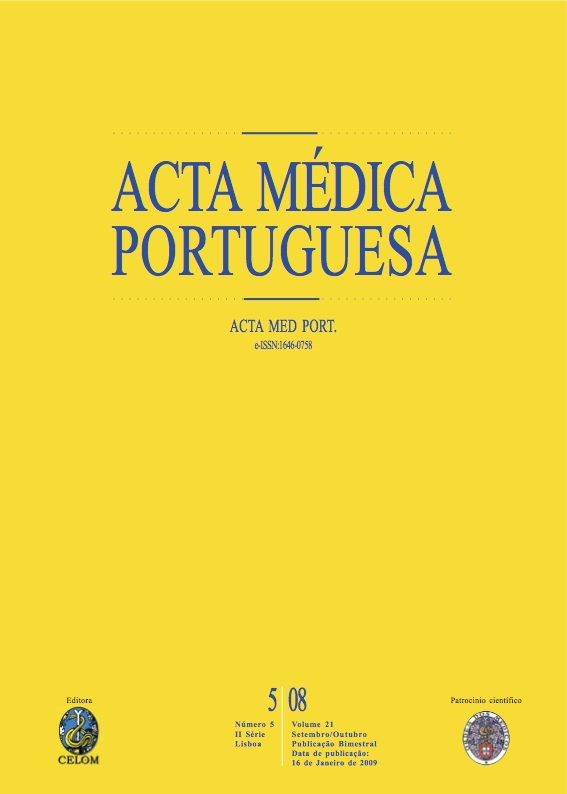Disfunção neurocognitiva após cirurgia valvular.
DOI:
https://doi.org/10.20344/amp.1637Resumo
Neurocognitive dysfunction is, nowadays, reported as one of the most frequent complications of cardiac surgery, with documented potential to have a negative impact on quality of life. Notwithstanding, the cognitive evaluation is almost exclusively restricted to research contexts, being depreciated in clinical settings. Cognitive functioning changes have mostly been investigated in patients submitted to coronary artery bypass grafting, with data reporting to valvular surgery still being extremely rare. In spite of the dramatic reduction of rheumatic valvular pathology in developed countries, the burden of degenerative diseases owed to prolonged life expectancy keep the valvular heart diseases as a major Public Health problem. Beyond the intraoperative damage, which [corrected] is believed to occur in both surgeries, in valvular surgery the deficits might turn out to be the result of cumulative lesions caused by microemboli originating from prosthetic cardiac valves. Etiology of cerebral injury related to cardiac surgery is not completely elucidated, probably representing a complex interaction between cerebral microemboli, global cerebral hypoperfusion, inflammation and genetic susceptibility. The exact identification of the involved mechanisms is still a great challenge. The available data concerning cognitive performance after valvular surgery point out that this intervention appears to be more harmful towards cognition than the coronary artery bypass grafting, even when considering biological valve replacement. Thus, the type of valve prosthesis appears not to be the prevailing factor in cognitive complains maintenance, with age and type of valvular intervention being the most influent factors on long-term prognosis. A notable variability between results of different studies may arise from diverse investigational methodologies and from factors related with difficulties inherent to the cognitive assessment, such as the diverse methods used for evaluation and the presence of a remarkable number of confounding factors. Investigation on valvular surgery neurocognitive effects is still in a very incipient period, being crucial to accurately establish the exact influence of the specific variables of this particular patient's group, such as the type of surgery and valve prosthesis. Furthermore, the clarification of the pathophysiological mechanisms subjacent to neurocognitive dysfunction might represent an important step to look for potential preventive or therapeutic strategies that could ameliorate brain function after cardiac surgery.Downloads
Downloads
Como Citar
Edição
Secção
Licença
Todos os artigos publicados na AMP são de acesso aberto e cumprem os requisitos das agências de financiamento ou instituições académicas. Relativamente à utilização por terceiros a AMP rege-se pelos termos da licença Creative Commons ‘Atribuição – Uso Não-Comercial – (CC-BY-NC)’.
É da responsabilidade do autor obter permissão para reproduzir figuras, tabelas, etc., de outras publicações. Após a aceitação de um artigo, os autores serão convidados a preencher uma “Declaração de Responsabilidade Autoral e Partilha de Direitos de Autor “(http://www.actamedicaportuguesa.com/info/AMP-NormasPublicacao.pdf) e a “Declaração de Potenciais Conflitos de Interesse” (http://www.icmje.org/conflicts-of-interest) do ICMJE. Será enviado um e-mail ao autor correspondente, confirmando a receção do manuscrito.
Após a publicação, os autores ficam autorizados a disponibilizar os seus artigos em repositórios das suas instituições de origem, desde que mencionem sempre onde foram publicados e de acordo com a licença Creative Commons









